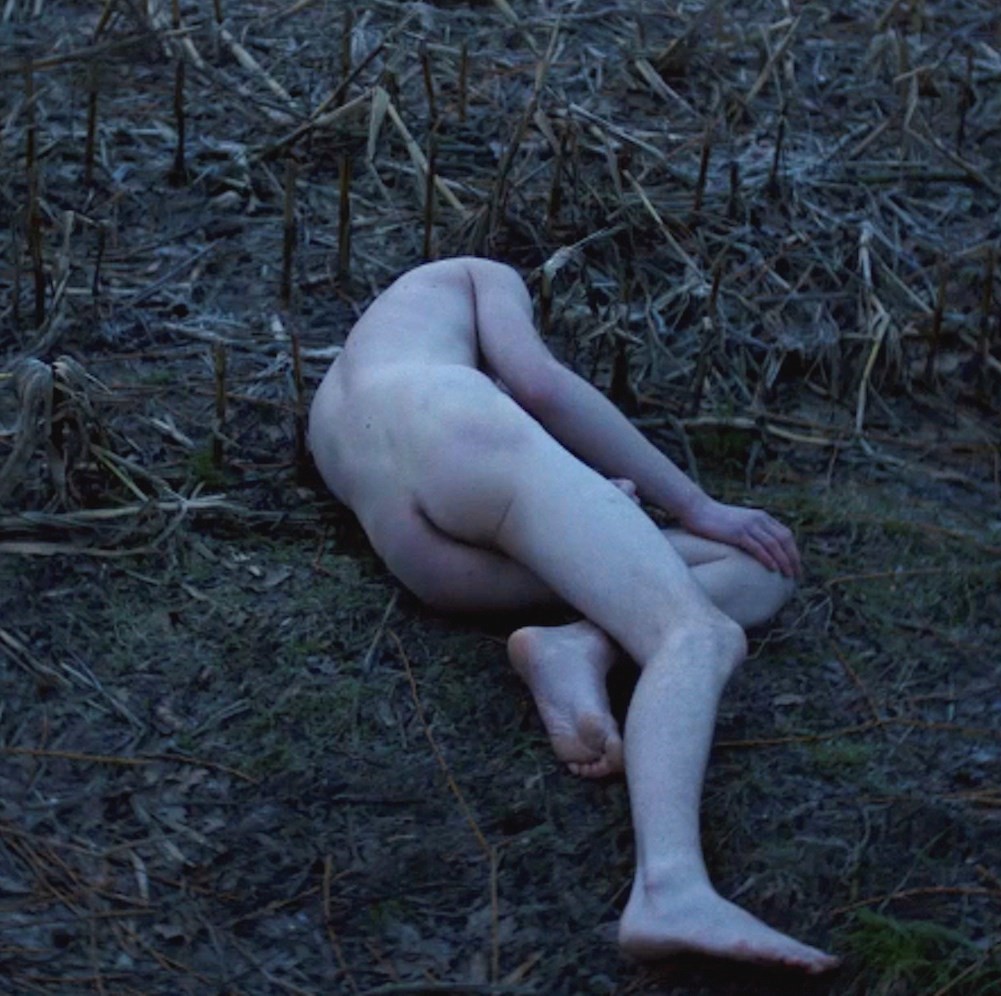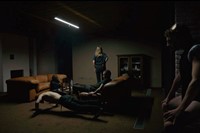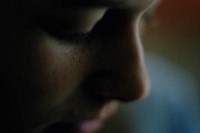“Youth is the most intense period you can ever have, physically but psychologically as well,” says Willy Vanderperre. “You actually really do believe that nobody in the world understands you.” For more than 30 years, the Belgian photographer – who studied at Antwerp’s Royal Academy of Fine Arts and has spawned an instantly recognisable, chalky, almost godlike aesthetic with his frequent collaborators Raf Simons and Olivier Rizzo – has been fixated on youth and all its trappings. Now, his first-ever feature-length film, Heartlands, takes this obsession even further.
Set in the quiet, Belgian region of Flanders – where Vanderperre himself grew up – the film centres on five teenagers as they transition messily into adulthood; scenes include actors dancing, drinking and taking drugs, masturbating to the cold glow of their computer screens, and bullying, even assaulting one another. Heartlands is driven more by feeling than narrative, and has a distinctly arthouse sensibility. “I think this was my experimental movie,” he says mischievously over Zoom from his studio in Antwerp.
Despite all the growing pains – both literal and metaphorical – of adolescence, Heartlands seems, above all else, to be about friendship and the joys of living fully in the moment. “We tend to forget it, but if you look back at that time, it’s quite romantic and even endearing,” he says.
Here, Vandeperre talks about his experimental new film, why all art is autobiographical, and the eternal struggle of capturing youth on camera.
Violet Conroy: How did you come up with the idea for this film?
Willy Vanderperre: It is, I think, an ode to youth; maybe a radical ode to it. Youth is so fleeting and so transient and so short. In the beginning, it’s them in their natural setting. As a teenager, the place you spend the most time in is your bedroom because it’s your safe haven. It’s a place where you can be alone with your thoughts and tortuous feelings that you can’t really express, because you know that nobody else in the world will understand. If you look back at that time, it’s quite romantic and even endearing – but we tend to forget it, the minute that we are in that zone.
“Youth is a state of mind. And also it’s the most intense period you can ever have, physically but psychologically as well” – Willy Vanderperre
With the second part, we went into [the stage where the characters have] developed more, but still haven’t found their voice. There’s a rave and an afterparty, but it’s a nightmare. You still can’t express yourself, so maybe you lose yourself in raving or whatever. But there’s this search to show your true self, your identity that you’re trying to create for yourself.
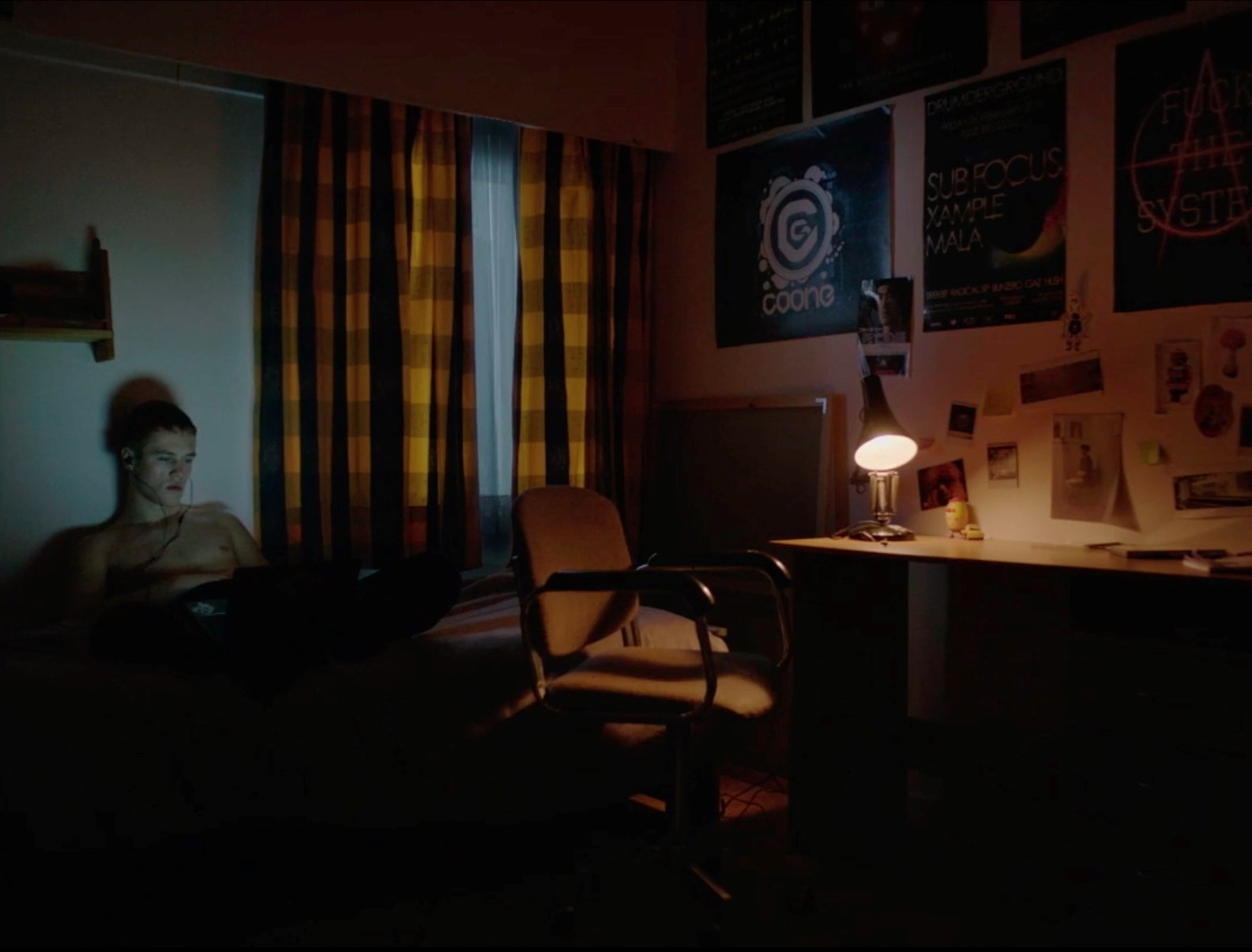
And then in the end part, the dinner scene – this is where in fact you have a voice, but the voice is a little bit manufactured by the people who are your friends at the time. Maybe you are taking some of the intellect of somebody that you like, and you have just started reading books. You’ve created this persona from this influx of information you’ve gathered, which is a delusion.
And then we ended with the grotesque purely because you are almost alienated from that person you were in your bedroom when you were 15 years old. [Since then, you’ve] been loved, corrupted, accepted, rejected. You are becoming that person that you say is the real you, whereas we all know that we have different personalities; the one we portray to the rest of the world, and the one we keep to ourselves when we are private at home.
VC: I’ve read that this film was inspired by your own upbringing in the Bible Belt in the Netherlands.
WP: Yeah, in Belgium, you have different sections, which are kind of religious, and I grew up in a religious place so we went to church on Sunday. Everything we do – whatever outlet we use to express ourselves and to get rid of the demons we have inside of us – everything has its core in autobiography. Every character in that movie has a part of me, but it’s a fictive story.
VC: Does the medium of film offer a better way to be autobiographical than your photographs?
WP: Well, maybe in a way. If you would take the whole span of the work I’ve done, and you were to glue them all together, they would all be semi-autobiographical. They will maybe tell you the storyline of my life, each period I went through. There’s a period where I did dark pictures, for example. You evolve as a photographer, whereas the movie is way more condensed – you tell the story in one hour and 11 minutes. The expression is more direct.
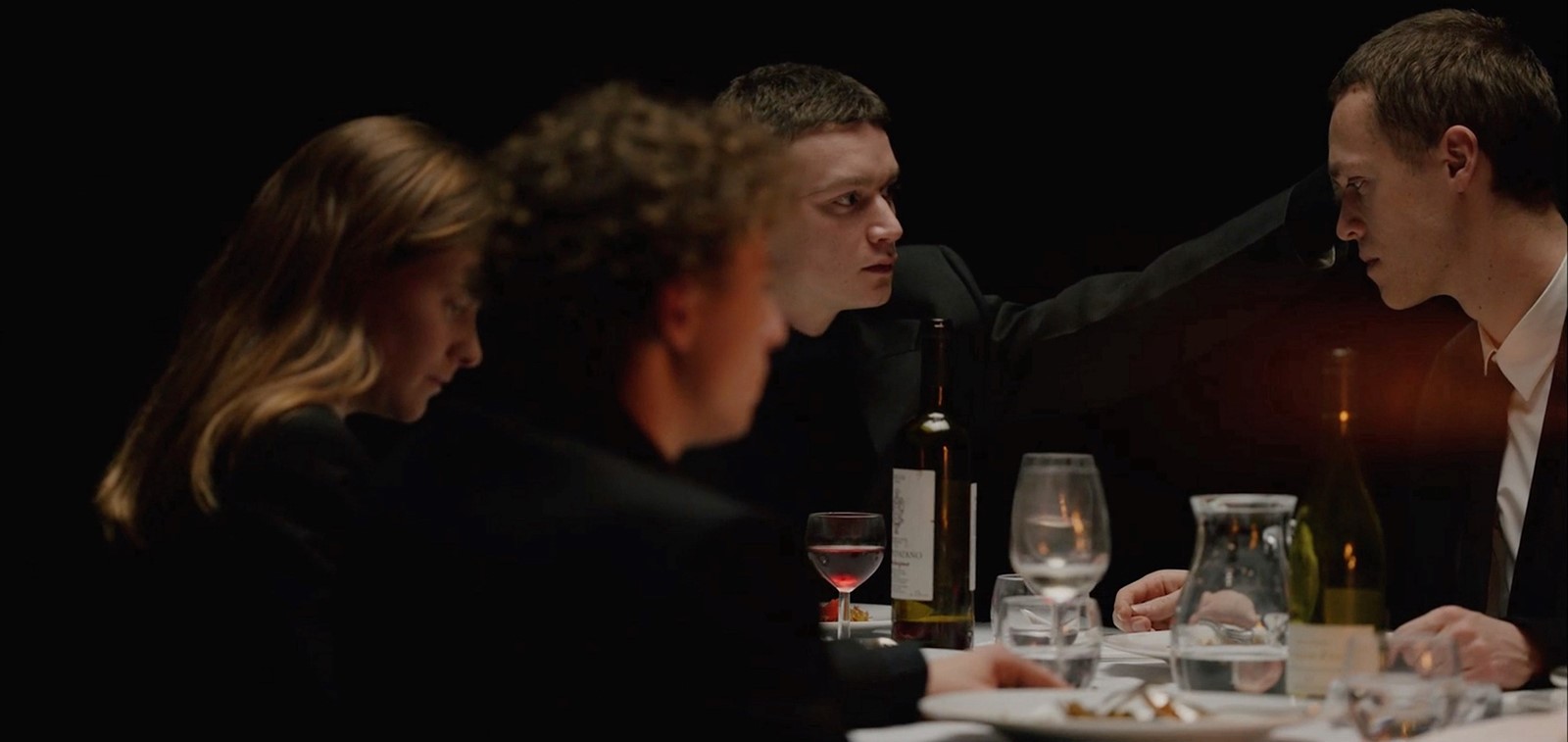
VC: What inspired you to begin making films?
WP: I’ve always wanted to go further than still imagery. It’s just a different take on imagery, it’s a different take on how to tell a story, it’s a different take on how to express yourself.
VC: Who are your biggest cinematic influences?
WP: I don’t have a cult director, I don’t have a cult photographer, I don’t have a cult anything. I am interested in the [whole] field of it so I see a lot, from the little films to the big blockbusters. The intake of all those influences creates this world for you, and then you try to create your own world. Of course, I like The Night of the Hunter, which is always a stylistic reference for me because it was such an avant-garde movie. Of course, I like Gus Van Sant and of course, I like Larry Clark because they’re youth-obsessed, but I don’t think it would be fair for me to say that these are my main inspirations, because I would leave out so many other people that have inspired me.
“I don’t have a cult director, I don’t have a cult photographer, I don’t have a cult anything” – Willy Vanderperre
VC: Could you tell me about your fascination with youth? In the past, I know you’ve said it’s more about a state of mind than a physical state.
WP: Youth is a state of mind. And also it’s the most intense period you can ever have, physically but psychologically as well. You actually really do believe that nobody in the world understands you. Even if you share, you still feel that you are not fully understood. And maybe we go through life with all those questions, but they reach their peak at that period because you’re still trying to figure out who you are. The minute you go to high school, you go through a lot of stuff and your brain grows more. There’s something about that period that is so intense, and you will remember it for the rest of your life.
And like I said, it’s such a short period in somebody’s life. And I think that’s why it’s so intriguing because it’s also hard to capture. So you can only try to do it, whether with an image or what we tried to do with the film.
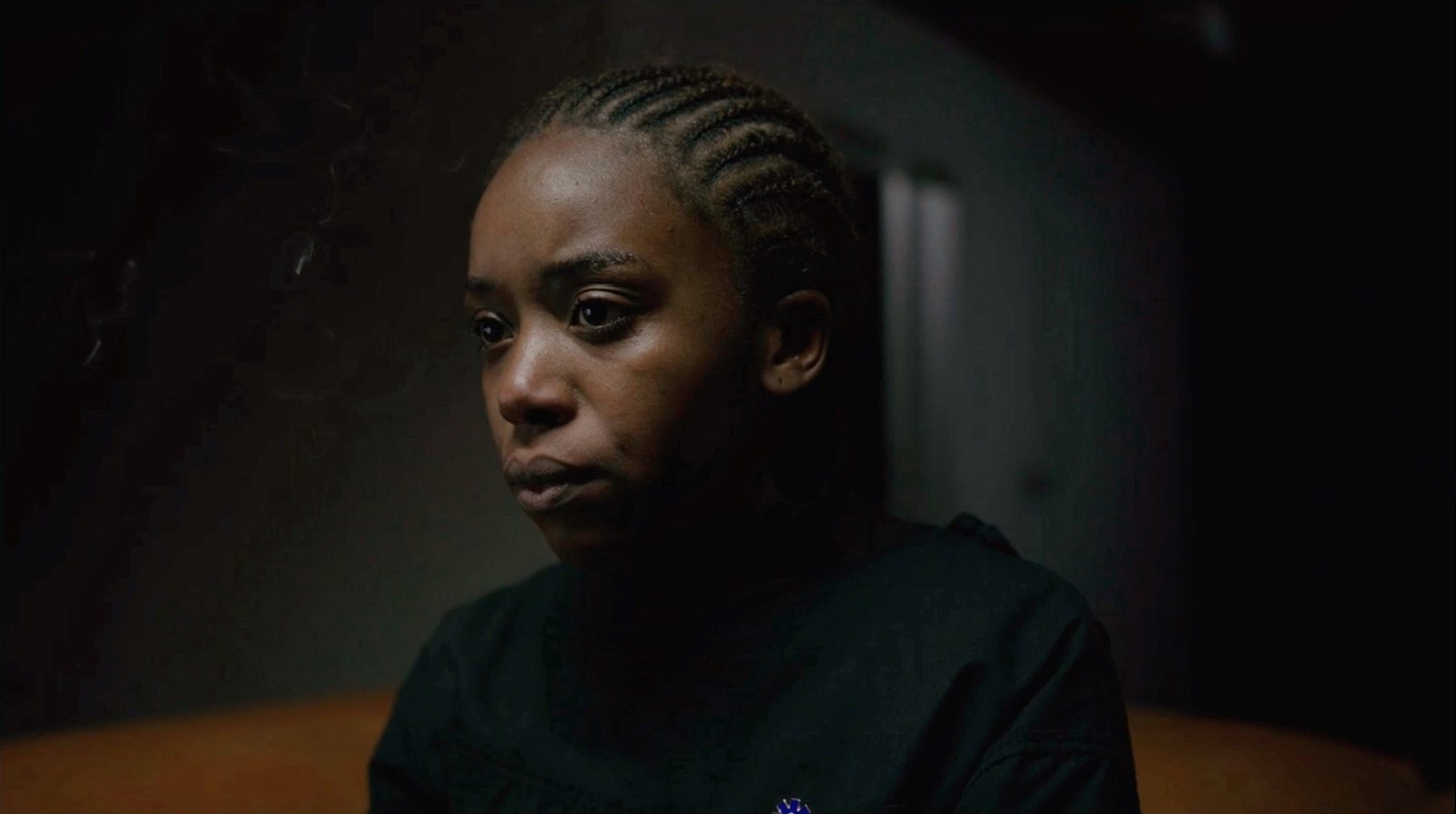
VC: One of the main messages of the film seemed to be about the importance of friendship and living in the moment. Do you think that people have somewhat forgotten how to be present these days, because of technology?
WP: Maybe it’s coming back – I don’t think we’ve lost it. What has completely changed is the absurd amounts of information we get on a daily basis. For us, it’s obviously difficult to cope, but for the youth nowadays, it must be more difficult to cope because there’s just so much input.
I’m happy you say that, because the movie is about love, but I tried not to give a sentimental version of it. There’s not really a love scene in there, but it is all about friendship and how friends in difficult situations survive and grow. Yes, there’s tactility, yes, there’s violence, yes, there’s misunderstanding and there’s acceptance, there are goodbyes. So yes, we tried to enhance those things that we have lost a little due to [things like] taking a selfie of each other when you’re at the table.
VC: Tell me a bit about working with Olivier Rizzo on the styling for the film.
WP: Olivier is always a part of it. I was very much building the character through clothes already, and with this project he was more of a fine tuner because I knew exactly what those kids were going to wear from head to toe. So it’s always a conversation with Olivier, he’s a big part of my life.
VC: Do you have plans to do more films in the future?
WP: Oh yeah, of course. [Laughs.]. I think this was my experimental movie. That’s why we’re doing the world premiere off the grid – it’s in the same period as Ghent Film Festival. I think that a movie can be an experience, rather than [when] you have to be completely directed into a narrative from A-to-Z. We try to leave it open to interpretation. We are currently working on our next one, which is in pre-financing state, as people call it now. But this was my first take on what I think a movie could be.
Heartlands will premiere at the Sphinx Cinema in Ghent, Belgium on October 20. Buy tickets here.
